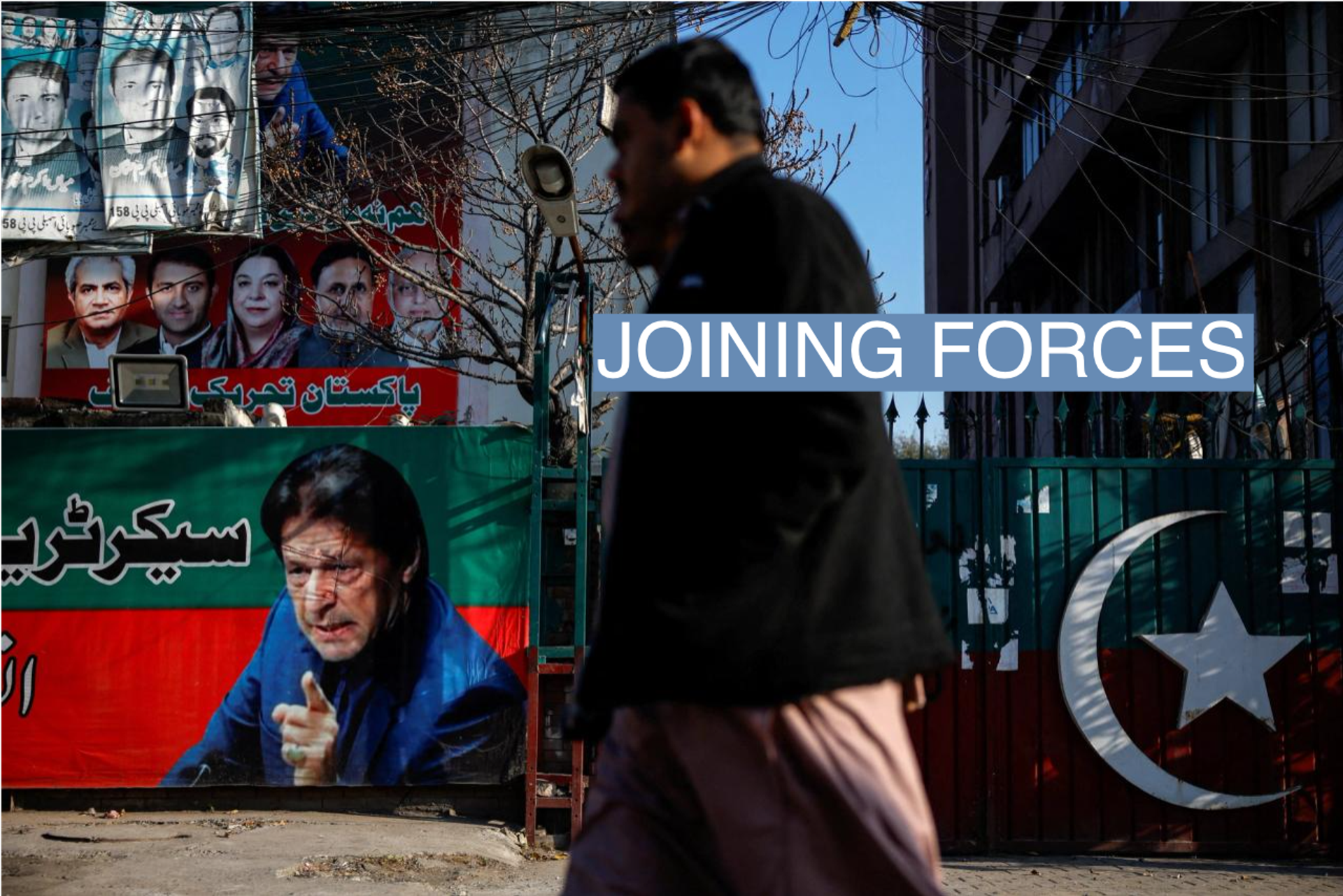The News
Two rival Pakistani parties have forged a coalition, blocking allies of jailed former prime minister Imran Khan from forming a government after last week’s disputed election.
Candidates allied to Khan’s Pakistan Tehreek-e-Insaf party — forced to run as independents after the party was banned from contesting in the polls — won the most votes but fell short of securing a majority. Khan is currently serving multiple sentences on charges of corruption that he vehemently denies.
The new coalition deal was reached by the Pakistan People’s Party, led by Bilawal Bhutto Zardari, son of the late and former Pakistani premier Benazir Bhutto, and the Pakistan Muslim League, led by another former premier, Nawaz Sharif.
SIGNALS
PTI’s election victory stunning in face of Khan’s imprisonment
That PTI was able to secure as many seats in government as it did, taking a total of 93 out of a possible 266, “is nothing short of a political miracle,” Pakistani commentator Mosharraf Zaidi wrote in The News International. He questioned whether a government that excludes the PTI is capable of governing, given the party’s vast popularity among the public. “What happens when you deny the undeniable? And when you burden the undeserving with responsibility they have failed to earn,” he asked.
Results put spotlight on role of Pakistan’s military
The PTI is enjoying huge support, even as its candidates are in hiding, or in some cases jailed, as the nation’s authorities have rounded up supporters. The results are “both clear and complicated,” the BBC’s Pakistan correspondent, Caroline Davies, noted. The military had backed PML’s Sharif, Pakistan’s three-time former premier. But candidates affiliated with Khan’s party still secured the most seats, leading Davies to question what power the military actually holds in the country. “What many had thought would be a relatively predictable election has proved anything but,” she wrote.
Election-tampering allegations abound
Sharif, the PML leader, has called for national unity following the coalition’s establishment, a sentiment echoed by the Pakistani military’s leader. But with allegations of voting irregularities, it seems that the people’s mandate has “been stolen yet again,” wrote Dawn columnist Zahid Hussain. Overnight changes in vote turnout, where trailing candidates suddenly secured enough votes to win their seats, are nothing new, he noted, but the degree to which this election appears to have been tampered with is unprecedented. A “new power play has begun, disregarding all democratic norms. Wheeling and dealing is the name of the game. It’s all about power and control that has brought together vested interests,” Hussain wrote.

